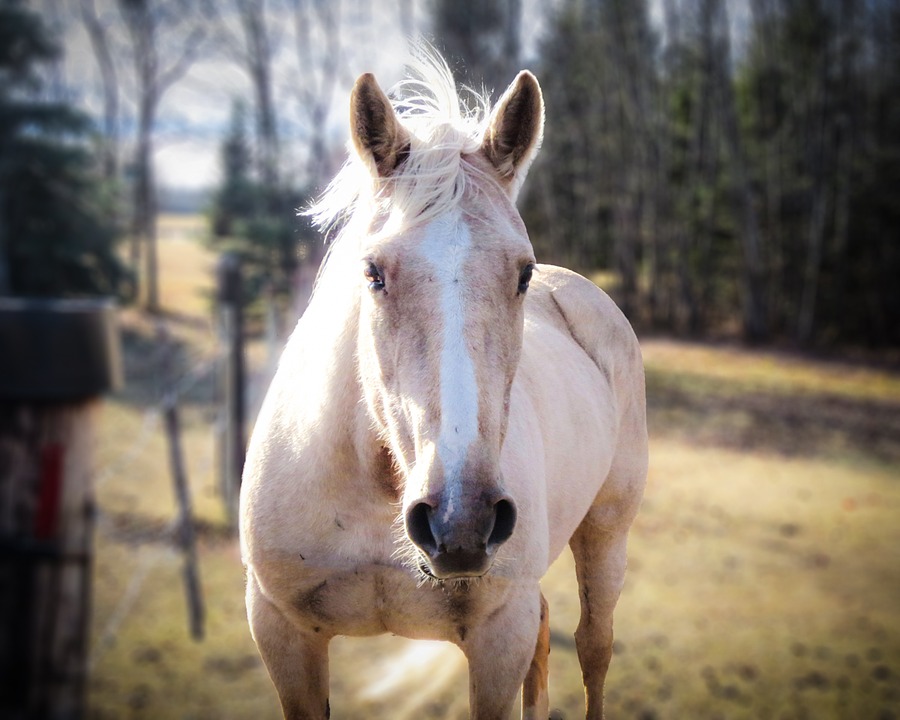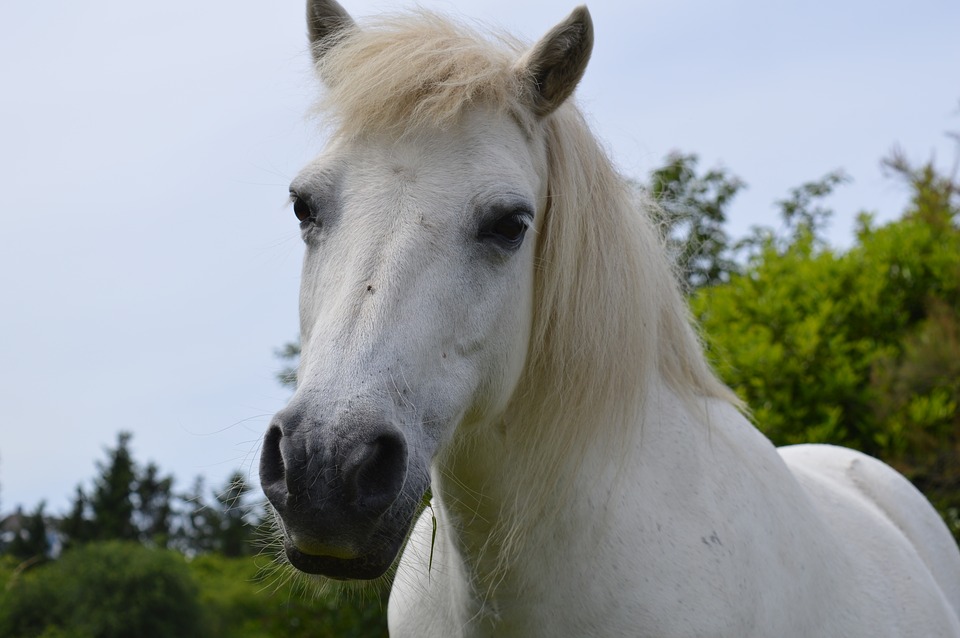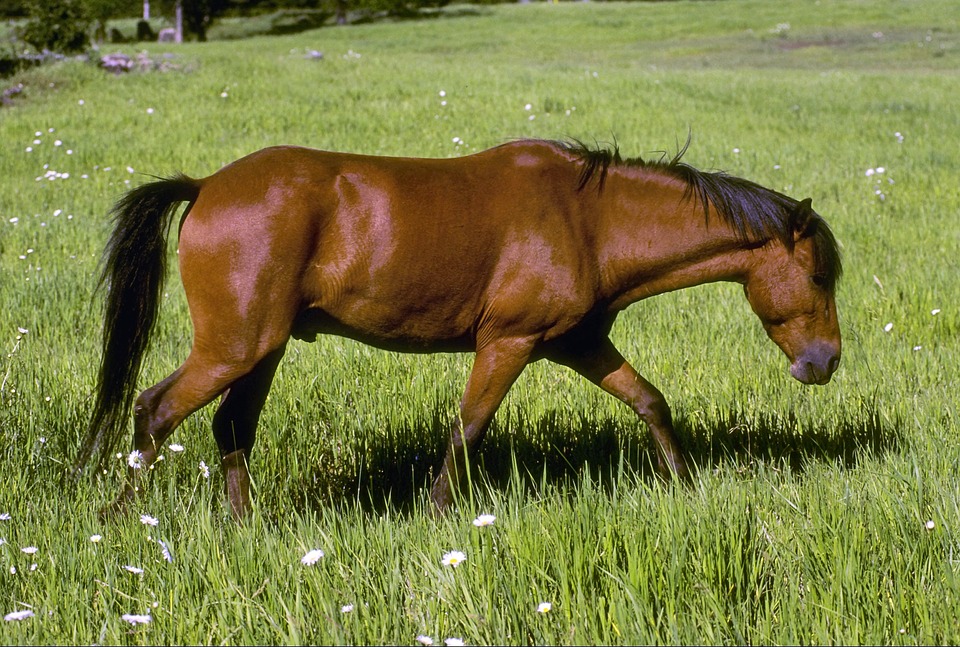
What should you feed your horse? What is the best possible horse diet, aiming for complete nutrition to ensure it gets everything that it needs? Those are the questions we will answer in this guide to horse nutrition.
Horses can be expensive and demanding pets, but millions of people around the world are proud horse owners, treating them as pets, as jumpers, runners, show animals and work horses. Their size, their stamina, they speed and their discipline makes them a perfect match for any hard work, while their friendly nature and tendency to create bonds with humans and other animals makes them great pets.
Pony and Horses Diet
There are a few things to consider when ensuring you horse gets the best nutrition possible.
- Fresh Water: It should always have access to fresh, clean water, just like dogs, rabbits and other animals. Hydration is key to good horse health.
- Grazing: The best horse diet is one that the horse chooses itself. They should be allowed to graze on green pastures for as long as possible. They won’t eat all day, but giving them access like this ensures they can keep their digestive system in working order.
- Forage: A good horse diet is one rich in forage and not one that is predominately made up of concentrated grains and other feeds. However, concentrates can be supplied in small amounts to help them get the essential nutrients they need if they are not getting them elsewhere.
- Mineral Licks: Salts and minerals can be added to concentrates, but if not then you should look to add a salt block to the pasture.
- Fermentable Foods: Avoid giving your horse large amounts of apples and other fruits. You should also abstain from giving it the clippings from your lawn. This is a common mistake and doesn’t make for good equine nutrition.
- Monitor: You should monitor your horse’s diet closely because a sudden change could cause digestive upset and may even trigger serious illness. What’s more, by paying attention to what your horse eats you may be able to spot disorders and diseases as soon as they arise.
- Exercise: Horses should be kept active at all times. They should not be allowed to become overweight as serious problems can result from this. They don’t handle excess weight as well as a dog or cat might do.
Plants Toxic to Horses
Be very careful when you are letting your horse run free and eat plants and herbs that border their foraging area. There are a number of plants that are toxic to horses and should not be included in their diet. Learn to spot the many plants that are toxic and make sure you completely remove these from your land before you let your horse run free.
If you are worried that they may have consumed such a plant then consult your vet. In many cases it is best to take immediate action just incase the plant consumed triggers immediate distress. Your vet will know what to do.
Horses Eating Grass and Hay

Grass and hay should be provided to horses at all time. Like bunnies, they will happily sit and chomp away at these. They are essential for all horse diets because they aid with digestion and help to keep them going throughout the day.
As mentioned already, be wary of providing them with cut grass. As soon a it is removed from the ground it begins a fermentation process that may be harmful to your horse.
Feeding Horses Vegetables and Horse Treats
Vegetables and fruits should not be given as a major part of a horse’s diet. However, they can be given as occasional treats. Apples are good for this, as are carrots. Some owners are even known to feed processed meat as horse treats, but this is not advised. They are herbivores. They bodies are made to processed grasses, grans, vegetables and occasional fruits, not tinned hot dogs.
You should also avoid investing too much in processed and specialized horse treats as they are just not needed. Why go to the trouble of overloading your horse with sugar and other unhealthy things when they are perfectly happy with an occasional apple.
Horses Eating Habits
Horses will happily graze for most of the day, eating the grass that grows naturally and the hay that you provide. This helps to keep them healthy and will provide the bulk of their diet. It will keep their digestive system strong and the silica in grass will also ensure they have strong teeth. It may not seem like a nutritionally sound foodstuff and to humans it is not, but horses love it and they need it.
If grass isn’t available, then a good hay can be given instead. Many horse owners will have the hay tested for its vitamin and mineral content, before looking to find horse supplements that can make up any deficits. This is especially important if there is no grass available and the horse will be fed primarily on hay.
Grains should also be fed to horses. This is where oats come in. These are the stereotypical horse food, but unlike the mice/cheese stereotype, this one is true. Horses love oats and they are good for them. You can also feed them small amounts of corn, but try to avoid too much wheat, as well as any grains that are grown and processed for humans, as a lot of the goodness is often taken out of these.
What is in Horse Feed?
There are many different brands of horse feed, each proclaiming to offer a product that is better than everything else on the market. In truth, many of these feeds are the same and the price is more reflective of the quality of the ingredients chosen, as well as branding, than anything else.
They are a careful balance of proteins, often coming in the form of soya, peas, beans, seeds, and carbs, which comes as a series of grains as well as plenty of oats. There is usually a good chunk of fibre in there as well and this can be in several forms, including straw, vegetable pulp and grasses like alfalfa.
Bad Equine Nutrition

A bad horse diet is one that is too rich in processed foods, in sugary foods and in fruits. Your horse might eat these things when offered and they might even beg you for them, but that doesn’t mean they are healthy.
A horse’s diet is very specific and very important. If they don’t get the right foods and the right care then their health can deteriorate very quickly. And of course, water should also pay a part in this. A horse diet that consists primarily of pasture grass will drink less than a horse fed on hay, but water should always be provided nonetheless.